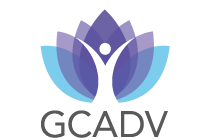Community Conversations
In fiscal year 2016, GCADV expanded its work in underserved communities in response to the barriers to responsive services faced by specific victim populations in Georgia, including victims of color, victims living in rural communities, victims with disabilities, and victims who identify as LGBTQ. We began by focusing on the African-American community where the impact of domestic violence and related barriers to service have had the most tragic impact. We began hosting a series of Community Conversations in the African American community enabling us to develop a better understanding of the needs of the African American community and African American victims of domestic violence as it relates to domestic violence outreach and access to services and resources. Our goal, through the conversations, is to partner with the community in breaking down barriers to service and obtaining safe and effective culturally responsive care through our member programs, both mainstream and community-based.
All victims of domestic violence (DV) face a variety of barriers to achieving safety, but victims from the marginalized/underserved groups face additional barriers which are unique to their status. African-American victims, Latino/a victims, and other victims of color face the additional barriers of racism and disproportionate economic inequality, with 27.9% of African-Americans and 32.1% of Latino/s in Georgia living at or below the poverty line in 2013 (Center for American Progress, 2014.) African-American victims, in particular, often deal with the barrier of mistrust of the systems that are designed to assist them, including law enforcement, child welfare institutions, and mainstream service providers. Immigrant and refugee victims face the additional barriers of fear of deportation, mistrust of law enforcement, and often language access barriers. LGBTQ victims face barriers of discrimination and fear of being “outed.” Victims with disabilities and victims who are Deaf or Hard-of-Hearing often face physical barriers to safety, including lack of appropriate accommodations or lack of language access. Rural victims often face the barriers of social and physical isolation, services that are located too far from where they live, lack of transportation, and low economic opportunity. Elderly victims often deal isolation and service providers that aren’t equipped to handle their medical and mobility needs.
The barriers to safety experienced by African-American victims of domestic violence are reflected most strikingly in the disproportionately high homicide rates in this population. According to the Violence Policy Center, Georgia leads the nation in African-American women murdered. While African-American’s made up 30.7% and 31.5 % of Georgia’s population in 2010 and 2015 respectively (U.S. Census Bureau, 2015), African American women made up 55% of female homicides in 2014 (VPC, 2016.)
In order to better meet the needs of these populations – in particular, the needs of African-American victims of DV – many small nonprofits and other unincorporated groups have been formed by individuals in communities throughout the state. Many of these groups struggle to sustain themselves financially and lack connections to the type of technical assistance (TA) and training that can enable them to provide excellent services.
Victims of DV in Georgia also need better knowledge of available resources, as well as additional life skills around managing finances and accessing publicly and privately available economic support services. In a nationwide survey of DV shelters, 74% of survivors indicated having stayed longer with an abusive partner because of financial reasons (Mary Kay Foundation, 2012.) We know that women in Georgia are disproportionately impacted by poverty, with 34.9% of female-headed households in Georgia living in poverty and 43.5% of female-headed households with children under age 18 living in poverty (U.S. Census Bureau, 2014.)
In order to better address the barriers and the diverse set of needs of these populations, and thereby increase safety and access to services, advocates working on the frontlines in Georgia– both in mainstream and community-based nonprofit programs – need additional training and support. In our work with African-American victims and other victims of color, we also need to gain an understanding of the historical trauma, institutional oppression, racism that victims of DV from these populations face.
